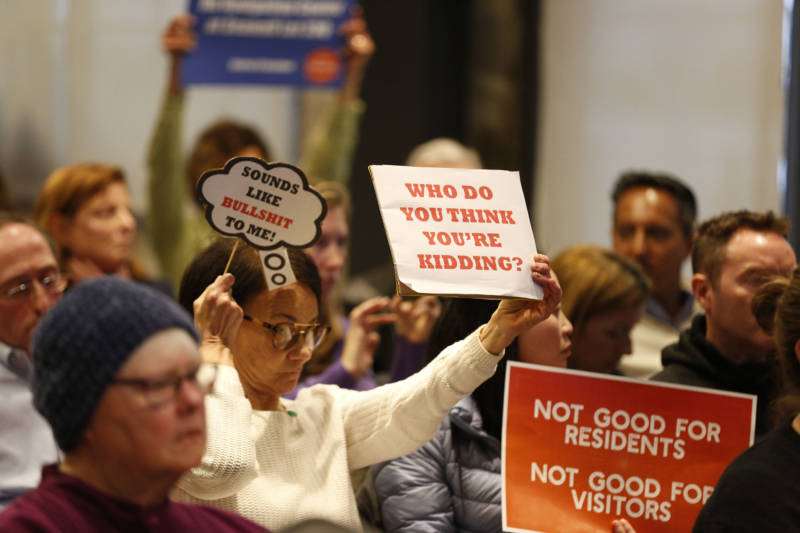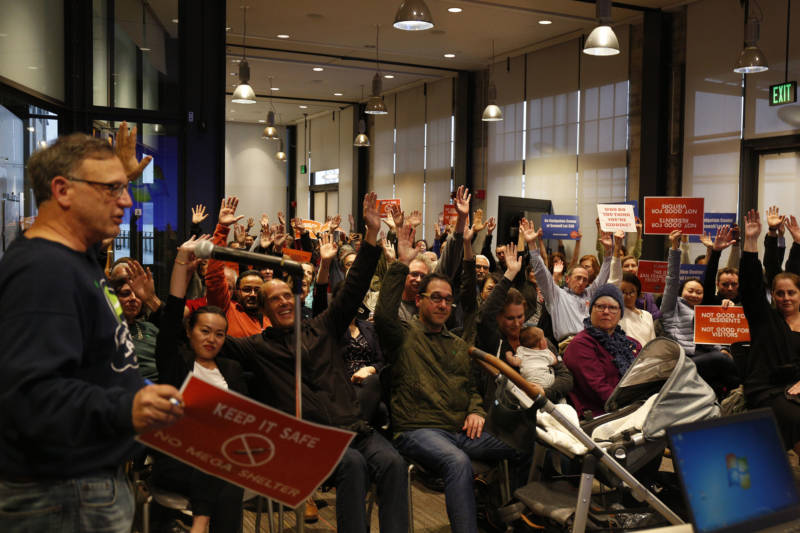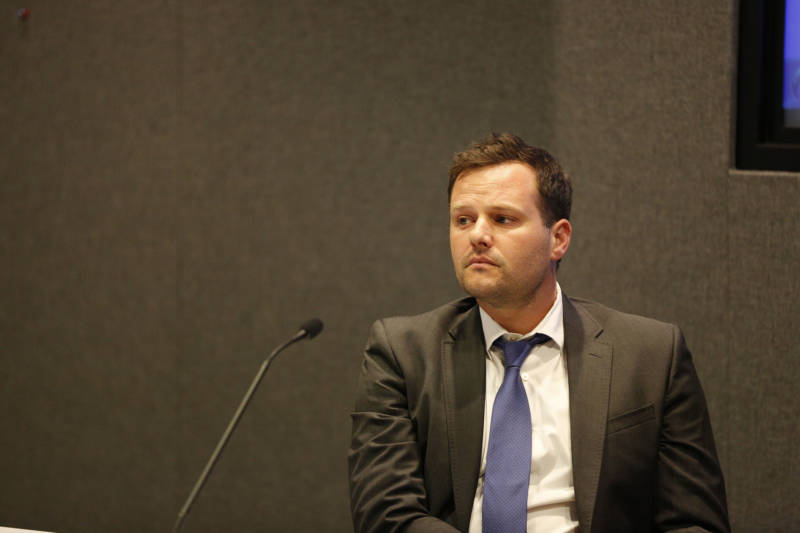San Francisco officials presented an updated plan at a community meeting Monday night to address concerns about a proposed Embarcadero navigation center for the homeless, an issue that has become a lightning rod among local residents.
San Francisco Officials Propose Scaled-Back Embarcadero Homeless Center With Increased Police Patrols

In pressing their case for the multiservice homeless shelter, city officials offered a compromise of sorts, in an effort to appease residents from the South Beach, Rincon Hill and Mission Bay neighborhoods, who have ardently opposed the plan. Officials suggested initially scaling back the proposed facility to 130 beds, consistent with the size of other navigation centers, and then gradually ramping up to 200 beds over six months.
They also proposed incorporating more community feedback into the facility's design and ensuring committed police patrols in the area to allay concerns about it transforming the tourist-heavy neighborhood into a dirty, crime-ridden place.
"Loitering and encampments are the main problems around other navigation centers,"Jeff Kositsky, director of the San Francisco Department of Homelessness and Supportive Housing, told meeting attendees. "It has been intermittent and has been addressed as quickly as possible. SFPD will provide an extra level of security not available at other centers."
Kositsky stressed that Dogpatch residents have been very happy with the navigation center in their neighborhood and have even asked the city to extend its lease for an additional three years. That detail, though, did little to assuage opponents, who quickly countered that the more industrial Dogpatch neighborhood was innately more conducive to hosting such a facility.

Kositsky also said a lease with the Port of San Francisco, which owns the 2.3-acre parcel, would last only for two years with a two-year renewal option. At his suggestion that the community might support extending the facility's operation, attendees laughed and one woman posited, "That's a joke right? Because we're not comfortable with it being built in the first place."
Opponents of the proposal made up the vast majority of the roughly 100 people who attended the meeting.
The Embarcadero SAFE Navigation Center would be built in the shadow of the Bay Bridge on the site of Seawall Lot 330, a 2.3-acre parking lot across from Piers 30-32.
During a similar meeting earlier this month, San Francisco Mayor London Breed appeared unexpectedly and was promptly booed by opponents.
Although first proposed in early March by Breed, controversy over the center erupted only a few weeks ago after a group of neighborhood residents started an online fundraiser to potentially challenge the plan in court.
That, in turn, provoked a dueling fundraiser among supporters of the proposal, one that quickly eclipsed its rival and has now raised more than $175,000, including major contributions from several high-profile tech CEOs.

The two fundraisers underscore just how divided San Franciscans are on the issue of homelessness and how best to address it. And that makes new legislation, to be introduced Tuesday by San Francisco District 6 Supervisor Matt Haney, all the more controversial.
Haney's legislation would require every district in the city that doesn't currently have a navigation center to open one within 30 months.
"Everyone in San Francisco knows that homelessness is a citywide crisis," he told KQED before Monday's meeting. "We have a solution — navigation centers — which have been around now for about five years and have shown that they can be effective in helping us solve this challenge."
Haney said he supports the proposed Embarcadero facility, which would be located in his district, despite staunch objections from some of his constituents.
Diane Deue, who has been a South Beach resident since 2002, said she was disappointed with both Breed and Haney.
"He needs to put his feet down and say no more in District 6 until you get one [navigation center] in every other district," Deue said. "Because I just feel like he’s placating us in working with the mayor and just saying, ‘Well after this law gets passed then we’ll go to the other districts.’ No, we have to put our foot down now and say equal distribution.”
San Francisco currently operates six navigation centers but, Haney notes, they're located in only three city districts, and conspicuously absent in a number of neighborhoods with large homeless populations.
"I actually think that it's more sustainable to have a distribution of these centers and that we'll be able to meet neighborhood homelessness in a more effective way," he added. "We have a shared responsibility. ... Our city is looking to us to put forward a bold plan that really reflects the situation in our communities, and I think that's what we're doing here."
KQED's Tiffany Camhi and Don Clyde contributed to this report.